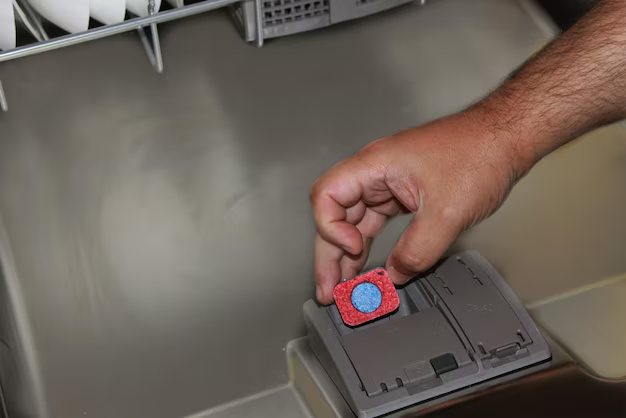Is Your Refrigerator Failing? Key Signs and Solutions
Your refrigerator is one of the most indispensable appliances in your home, keeping your food fresh and safe. But like all machines, it will eventually show signs of wear and potential failure. Knowing how to recognize these signs can save you money and prevent food spoilage. Let's dive into understanding the critical indicators of a failing refrigerator and what you can do about it.
🧊 Common Signs Your Refrigerator Might Be Failing
Refrigerators have a variety of components that contribute to their proper functioning, and several symptoms can indicate when something might be going wrong.
1. Unusual Noises
Background Hums or Clanks: While some noise is typical, especially a humming sound from the compressor, loud clanking or unusual whirring noises are not normal. These could signify issues with the motor or fan.
Buzzing Like a Bee?: Buzzing could indicate the compressor is working too hard, perhaps due to a refrigerant issue.
2. Food Spoiling Quickly
Lack of Cooling: If your perishables seem to be "perishing" faster than usual, the cooling system might be compromised. The refrigerator should sustain a temperature below 40°F (4°C) to appropriately preserve food.
Inconsistent Temperatures: Erratic temperature swings mean the thermostat or compressor could be the problem.
3. Excessive Condensation
Moisture Inside or Outside: Condensation on the external surface or pools of water inside the fridge can indicate poor sealing or temperature regulation issues.
Seal the Deal: Excess moisture could result from a damaged door seal, allowing warm air to enter and cool air to escape.
4. Frost Buildup
Freezer Not Frost-Free?: Excessive frost forms in freezers when air leaks, reducing efficacy and burdening the system.
5. High Energy Bills
Energy Surge: If there's a noticeable increase in your electricity bill without any other major appliance changes, your fridge might be using more power than necessary to maintain low temperatures.
Efficient Evaluation: Older models generally use more energy, but sudden changes can indicate a specific fault.
6. Strange Smells
Metal Burning Scent: A mechanical burning smell might signal electrical issues.
Stink Inside: Odd smells emanating from within might indicate spoiled food or mold, potentially pointing to incompetence in maintaining consistent temperatures.
🌡️ Troubleshooting Common Refrigerator Issues
Once you've identified a potential problem, consider these steps to address the issues.
1. Check the Thermostat Settings
- Temperature Settings Matter: Ensure the thermostat is set correctly. Many people inadvertently switch it when reaching for items.
2. Inspect Door Seals and Gaskets
- Seal the Cold In: Ensure door seals are intact by closing a piece of paper in the door; if it slides out easily, the seal may need replacement.
3. Clean the Condenser Coils
- Dust Accumulates Fast: These coils, typically at the back or beneath the fridge, can collect dust. Clean them gently with a vacuum to improve efficiency.
4. Clear the Air Vents
- Free Flow: Check that air vents inside aren’t blocked by food items, as this restricts airflow and affects cooling.
5. Test for Power Fluctuations
- Supply Surges: Ensure the appliance is plugged in properly and the circuit is not overloaded. Use other outlets if in doubt.
🔧 Professional Help: When DIY Isn’t Enough
Once common troubleshooting efforts prove fruitless, professional evaluation might be necessary. Here are some reasons for calling in an expert:
1. Persistent Problems
- Cooling Isn't Cooling: Continuous cooling issues despite attempts at resolution indicate deeper mechanical issues.
- Noise Continues: Unsettling noises following basic diagnostics warrant professional inspection.
2. Electrical Safety
- Avoid Shock: For safety reasons, especially with electrical components, it is better left to certified technicians.
3. Complex Repairs
- Precision Required: Compressors, refrigerants, and wiring require expert handling to avoid unintentional bursts or hazards.
🛠️ Refrigerator Maintenance Tips
Regular maintenance can significantly extend the life of your refrigerator and keep it operating efficiently.
1. Regularly Clean Interior and Exterior
- Consistency is Key: Clean spills immediately, and schedule deep cleans every few months to deter odors and mold growth.
2. Keep Coils Clean
- Tackling Dust: Routine cleaning ensures your fridge doesn't have to work harder than necessary.
3. Monitor Temperature Settings
- Stay Tuned: Check that settings haven’t inadvertently been changed, adapting cooling needs per season.
4. Avoid Overloading
- Space Matters: Avoid crowding the fridge; proper air circulation is essential for even cooling.
🚨 Quick Refrigerator Check Summary
Here’s a quick checklist to assess if your fridge might be failing:
- 🔉 Strange, loud noises
- 🧊 Increased frost buildup in the freezer
- 🌡 Inconsistent temperature inside
- 💧 Condensation leading to water puddles
- 🔌 Spikes in energy consumption
- 🚪 Loose or damaged door seals
🤔 When Replacement Might Be Better Than Repair
Practical wisdom often involves determining whether fixing the old fridge still makes financial sense compared to investing in a new one.
Considerations for a New Refrigerator
Age Just a Number?: Older models might cost more in repairs and energy than investing in efficient, newer models.
Frequent Failures: Recurrent repairs might mean the appliance is nearing its functional end.
Future Efficiency: Advanced models offer energy savings and other benefits that might justify the initial investment.
Closing Insight: Take Charge of Your Refrigerator’s Future
Recognizing the signs of refrigerator failure can empower you with choices, whether it’s time for a simple fix or a total replacement. As the unsung hero of your kitchen, your refrigerator deserves the diligence of timely care and maintenance to ensure your food storage remains safe and sound.

